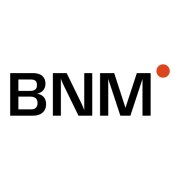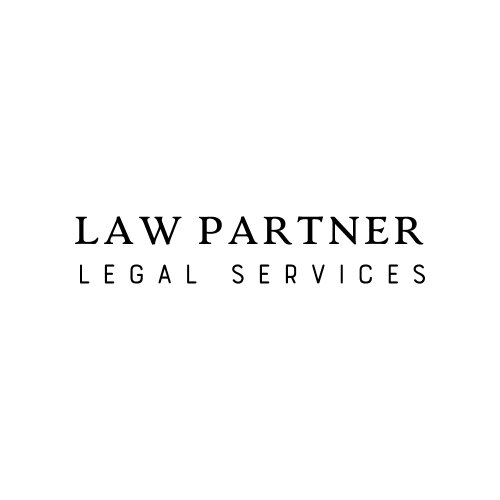Best Structured Finance Lawyers in Vilnius
Share your needs with us, get contacted by law firms.
Free. Takes 2 min.
List of the best lawyers in Vilnius, Republic of Lithuania
About Structured Finance Law in Vilnius, Republic of Lithuania
Structured finance refers to complex financial transactions that are designed to help companies and institutions raise capital, manage risk, or achieve other financial objectives by pooling financial assets and issuing securities against them. In Vilnius, Republic of Lithuania, the structured finance industry is growing as the country strengthens its position as a financial services hub within the European Union. Common instruments include securitizations, covered bonds, and syndicated loans. The legal environment for structured finance in Vilnius is regulated by both Lithuanian law and relevant European Union frameworks, ensuring security and transparency for investors, institutions, and businesses.
Why You May Need a Lawyer
Structured finance transactions are inherently complex and involve multiple legal, regulatory, and commercial elements. Individuals and organizations may require legal advice in the following situations:
- Structuring or participating in securitization transactions
- Issuing or investing in mortgage-backed or asset-backed securities
- Engaging in project finance or syndicated lending
- Complying with regulatory capital requirements and reporting obligations
- Negotiating and drafting complex loan or security agreements
- Addressing cross-border structured finance transactions involving Vilnius or Lithuania
- Resolving disputes or enforcing rights arising from structured finance instruments
- Handling restructuring or workout of distressed structured finance transactions
A structured finance lawyer can help navigate intricate legal challenges, ensure compliance with Lithuanian and EU regulations, and safeguard your interests throughout all stages of a transaction.
Local Laws Overview
In the Republic of Lithuania, structured finance activities are primarily governed by the following legal sources:
- Civil Code of the Republic of Lithuania - Lays out the legal foundations for contract and securities law, essential in structured finance arrangements.
- Lithuanian Law on Companies and Law on Securities - Provides corporate and securities law regulations, including issuing bonds and other financial instruments.
- Law on Financial Institutions and Credit Institutions - Regulates the operation and supervision of banks and financial institutions involved in structured finance.
- Supervision by the Bank of Lithuania - The central bank is the main supervisory body ensuring market stability, licensing, and compliance with anti-money laundering requirements.
- European Union Regulations - As an EU member, Lithuania applies EU directives and regulations on securitization, capital requirements, transparency, investor protection, and cross-border transactions.
Transactions must comply with legal disclosure standards, risk management controls, and reporting obligations. Lithuanian law provides contractual freedom, but public offerings and prospectuses are more heavily regulated to protect investors and ensure transparency.
Frequently Asked Questions
What types of structured finance products are common in Vilnius?
The most common products include asset-backed securities, mortgage-backed securities, covered bonds, syndicated loans, and various forms of receivables financing.
Is securitization legal and regulated in Lithuania?
Yes, securitization is permitted and regulated by both Lithuanian law and EU regulations. The Bank of Lithuania oversees these transactions to ensure transparency and compliance.
Do I need a license to participate in structured finance?
Entities such as banks and other financial institutions must be duly licensed and meet regulatory requirements established by the Bank of Lithuania and relevant EU directives.
Are there special disclosure requirements for structured finance transactions?
Yes, detailed disclosure is required for public offerings of structured finance products, in line with both local securities laws and EU regulations.
How can disputes arising from structured finance deals be resolved?
Disputes can often be resolved through negotiation and mediation, but may also be subject to litigation in Lithuanian courts or international arbitration depending on the contract terms.
Can foreign investors participate in structured finance in Vilnius?
Yes, foreign investors can participate, but they must comply with Lithuanian law, EU regulations, and any requirements set by the Bank of Lithuania.
What role does the Bank of Lithuania play in structured finance?
The Bank of Lithuania supervises financial institutions, ensures compliance with legal and regulatory standards, and protects the integrity of the financial market.
Is there a minimum size for structured finance transactions?
There is no fixed minimum, but regulatory requirements and market standards may effectively set a practical threshold for viable transactions.
How are taxes handled for structured finance products?
Taxation depends on the specific structure and participants. Legal counsel and tax advisors should be consulted to address potential tax implications, including value-added tax and corporate income tax.
Are cross-border structured finance transactions possible in Lithuania?
Yes, provided all legal, regulatory, and tax requirements are met for both Lithuania and the other involved jurisdictions. Legal support is highly recommended for such deals.
Additional Resources
For further information and legal guidance on structured finance in Vilnius, the following resources may be helpful:
- Bank of Lithuania - Supervisory authority for financial services
- Ministry of Finance of the Republic of Lithuania - Regulatory developments and public policy
- Lithuanian Bar Association - Directory of qualified legal professionals
- European Securities and Markets Authority (ESMA) - EU-wide regulations and guidelines
- Major law firms specializing in banking and finance law
Next Steps
If you require legal assistance with structured finance in Vilnius:
- Identify the nature and scope of your transaction or issue
- Gather relevant documentation and information
- Consult with a qualified local structured finance lawyer or law firm
- Discuss your objectives, regulatory obligations, and any cross-border implications
- Follow legal advice to ensure compliance and mitigate risks throughout every stage of the arrangement
Professional legal support can help streamline your structured finance activities, minimize risks, and maximize business opportunities in Vilnius and beyond.
Lawzana helps you find the best lawyers and law firms in Vilnius through a curated and pre-screened list of qualified legal professionals. Our platform offers rankings and detailed profiles of attorneys and law firms, allowing you to compare based on practice areas, including Structured Finance, experience, and client feedback.
Each profile includes a description of the firm's areas of practice, client reviews, team members and partners, year of establishment, spoken languages, office locations, contact information, social media presence, and any published articles or resources. Most firms on our platform speak English and are experienced in both local and international legal matters.
Get a quote from top-rated law firms in Vilnius, Republic of Lithuania — quickly, securely, and without unnecessary hassle.
Disclaimer:
The information provided on this page is for general informational purposes only and does not constitute legal advice. While we strive to ensure the accuracy and relevance of the content, legal information may change over time, and interpretations of the law can vary. You should always consult with a qualified legal professional for advice specific to your situation.
We disclaim all liability for actions taken or not taken based on the content of this page. If you believe any information is incorrect or outdated, please contact us, and we will review and update it where appropriate.














